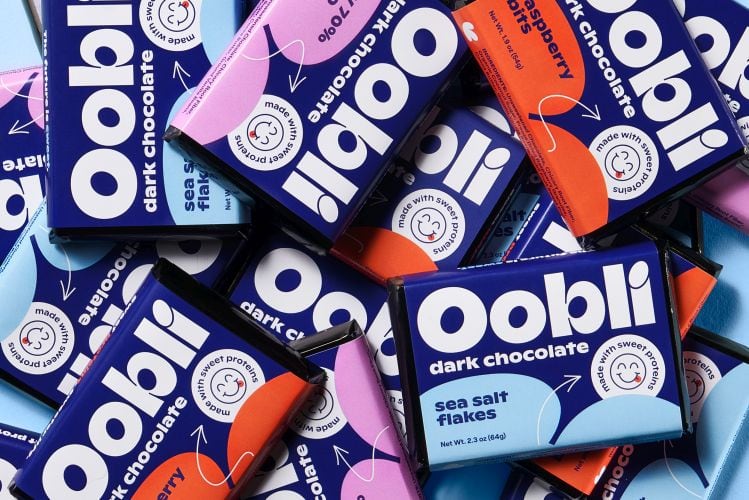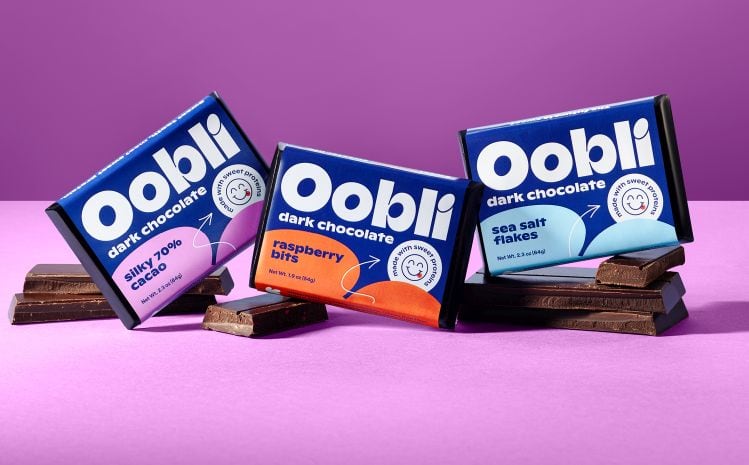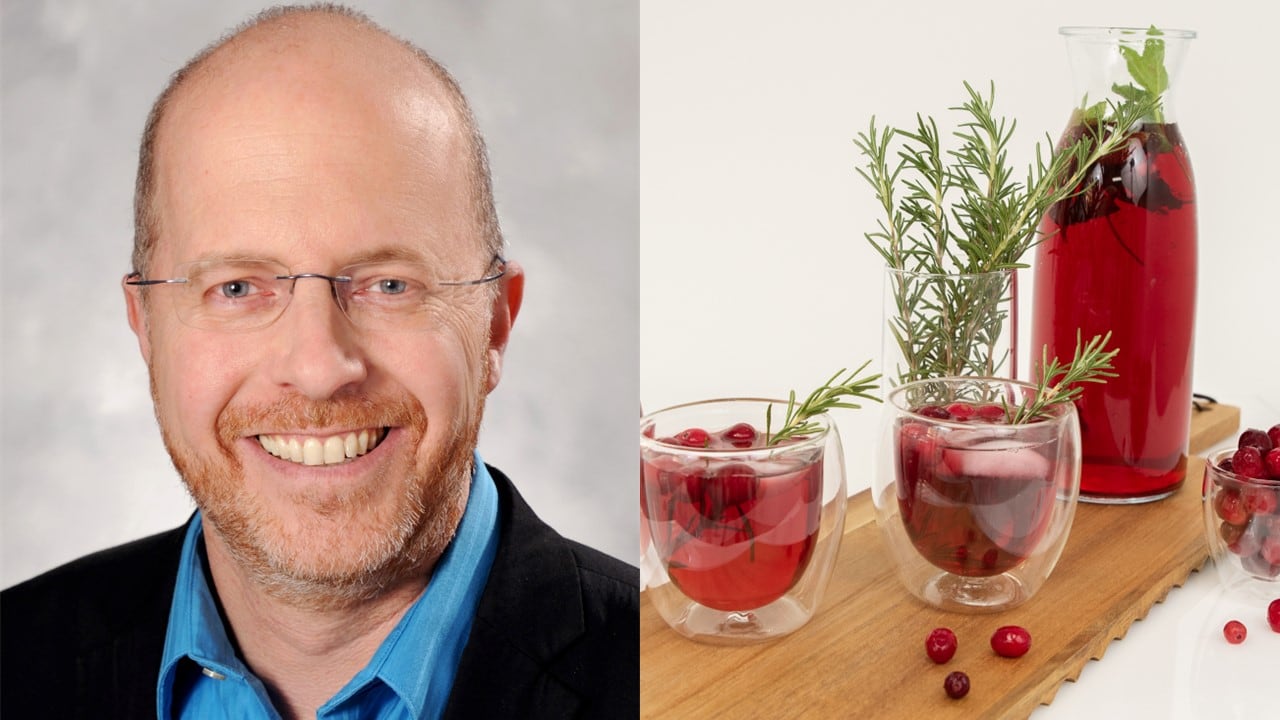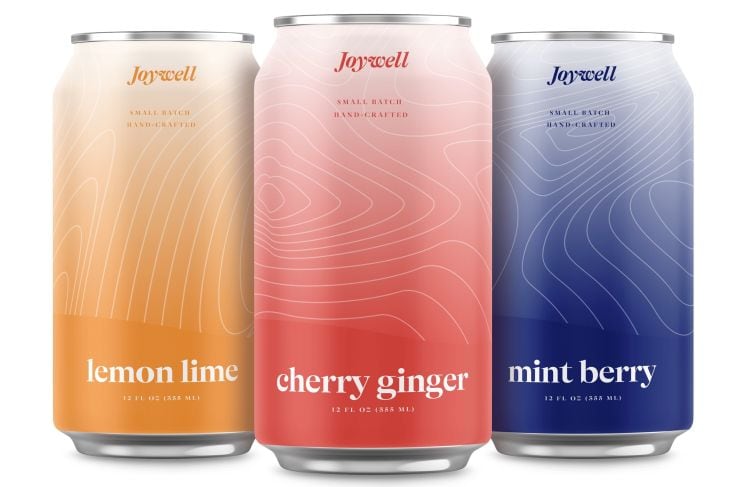Oobli – which was originally planning to debut with beverages – told us it had switched to confectionery as chocolate bars “were a better fit for a Q4/holiday launch, so it is more of a market/seasonality adjustment to the sequence.”
The chocolate bars - available for pre-sale on Oobli's website - contain unsweetened chocolate, chicory root fiber, organic coconut sugar, cocoa butter, ground vanilla beans, and oubli fruit sweet protein (a.k.a. brazzein).
Each 32g serving of the Oobli 70% cacao bar contains 150 calories, 3g sugar, and 9g fiber. As a point of contrast, Lindt 70% dark chocolate (sweetened with sugar) contains 190 cals, 9g sugar, and 2g fiber per 30g serving; while Lily's 70% extra dark no sugar added chocolate (sweetened with erythritol and stevia extract) contains 130 calories, 0g sugar, and 8g fiber.
2,000 times sweeter than sugar
The ultra-sweet protein brazzein – which is up to 2,000 times sweeter than sugar – is found in tiny quantities in oubli fruit, which makes it prohibitively expensive to extract.
Instead, Oobli is producing the same protein in fermentation tanks via a genetically engineered strain of yeast. However, as no detectible modified DNA from the host microbe (a pichia yeast strain) is in the final product, it will not trigger a ‘bioengineered’ label.
As the protein is chemically identical to the protein found in the fruit, the company is listing it as ‘oubli fruit sweet protein’ on the ingredients list, said the firm: “Oobli is a sweet protein platform technology and consumer goods company. The oubli fruit sweet protein is one of the proteins on the platform.”
Oobli - which raised $25m earlier this year - has not confirmed the regulatory status of its sweet protein although FoodNavigator-USA understands it is going through the GRAS process.
Sweet protein potential
While stevia and monk fruit sweeteners have improved significantly as firms have homed in on the more sugar-like steviol glycosides such as Reb M, sweet proteins add an exciting new dimension to the sugar-reduction toolbox, claimed CEO Ali Wing in an interview with this publication in May.
While some stakeholders such as Germany’s Nomad Bioscience (which expresses thaumatin II in transgenic plants instead and expects to be on the market by 2024) have argued in regulatory filings that producing sweet proteins via microbial fermentation is not scalable or cost competitive, Wing said she begged to differ.
“I wouldn't have joined the company to be a commercial leader if I didn't think we had a commercially viable strategy around costs of production, and we do believe we have a very clear path to cost competitiveness with sugar.”
Sugary taste profile without trade-offs?
But what’s exciting about sweet proteins in the first place?
They are all different, said Wing, with some a few hundred times sweeter than sugar (brazzein) and others (thaumatin) a couple of thousand times sweeter, but in general they’re exciting because they don’t come with the trade-offs that you get with most commercially-available high intensity sweeteners.
“Taste is the number one attraction, but a protein-based solution [for sweetness] is also attractive as it doesn’t trigger blood sugar or interact negatively with the gut microbiome; our bodies are very good at digesting and managing protein.”
Consumer-friendly labeling?
Another plus point is that while Oobli’s proteins are not extracted from fruits, they are bioidentical to the proteins found in fruits, so can be labeled in a very consumer-friendly way (eg. 'oubli fruit sweet protein'), said Wing.
“We're excited about using multiple sweet proteins together, as there are differences between them in things like solubility and heat stability and taste profiles, so thaumatin has a really nice upfront sweetness, for example, while brazzein is really soluble. The one that’s quite different is miraculin, which is a taste modifier [rather than something that itself imparts sweetness], and it's a different beast, if you will.”
Further reading:
· Joywell Foods raises $25m as it gears up to launch beverages featuring sweet proteins
· Sweet proteins… finally ready for prime time?
Sweet proteins include:
- Thaumatin I and II: from katemfe fruit, found in West Africa, 2,000-3,000x sweeter than sucrose, readily soluble in cold water
- Brazzein: from oubli fruit, found in West Africa, 500-2,000x sweeter than sucrose, heat-stable, stable in a wide range of pH conditions, and highly soluble
- Pentadin: also from oubli fruit, 500x sweeter than sucrose
- Curculin: from fruit of Curculingo latifolia found in West Africa, exhibits sweet-tasting and taste-modifying properties
- Mabinlin: from seeds of Chinese plant Mabinlang (Capparis masaikai Levl.)
- Monellin: from serendipity berries, found in West Africa
- Lysosome: from egg whites
- Miraculin: from miracle fruit, found in West Africa. It is not sweet in and of itself, but binds to sweet receptors to cause sour-tasting acidic foods such as citrus fruits to be perceived as sweet





